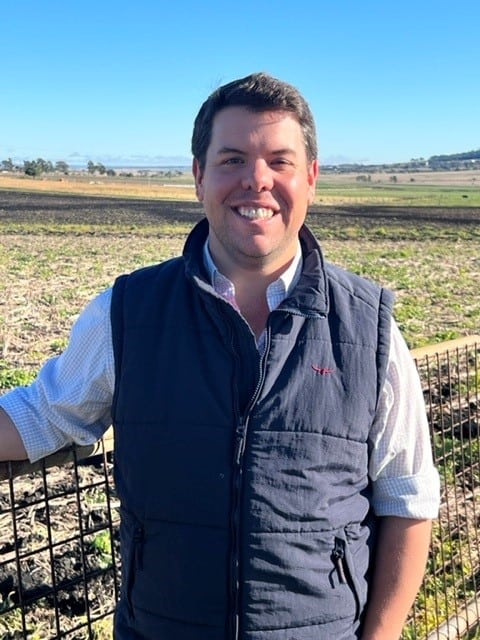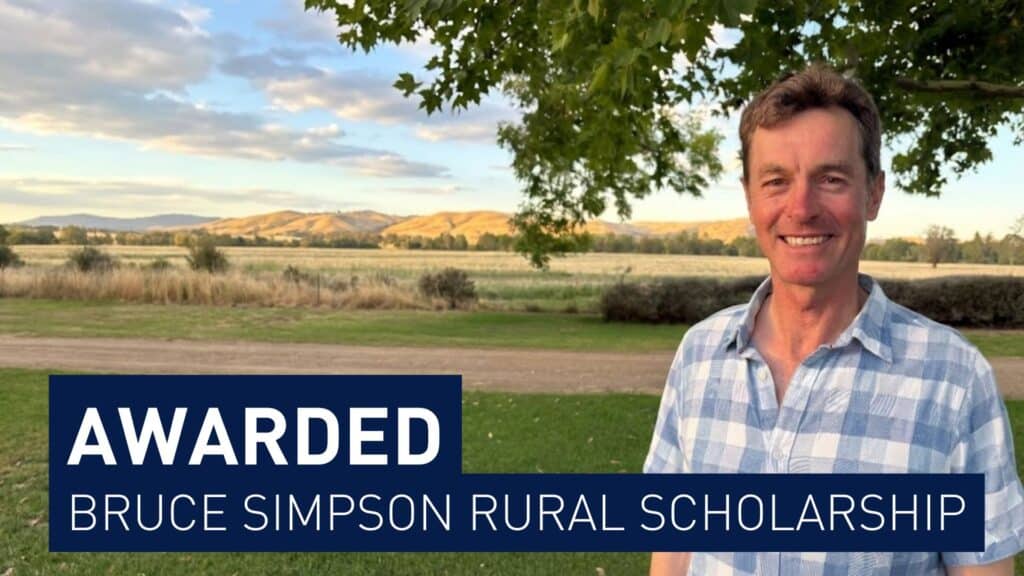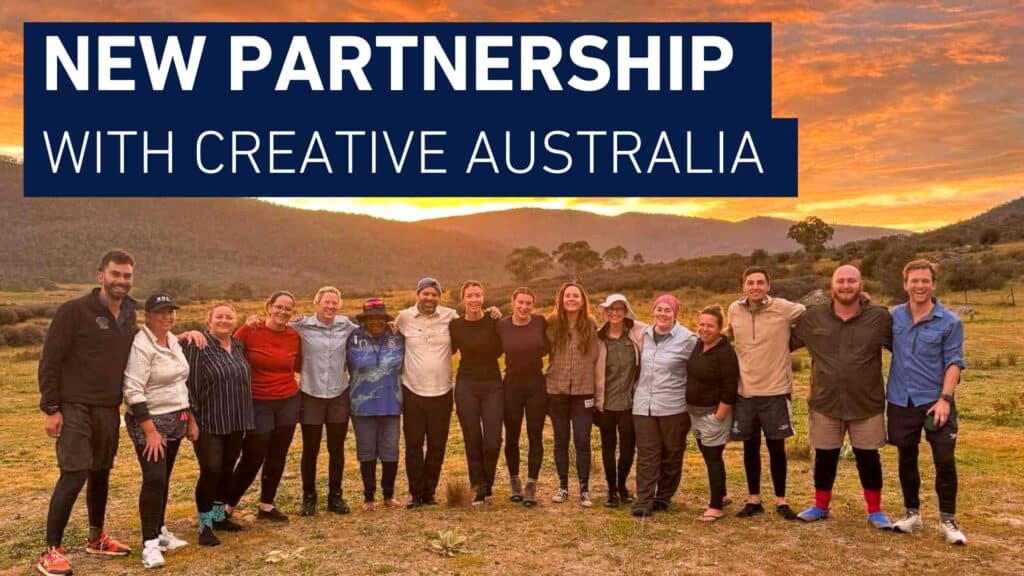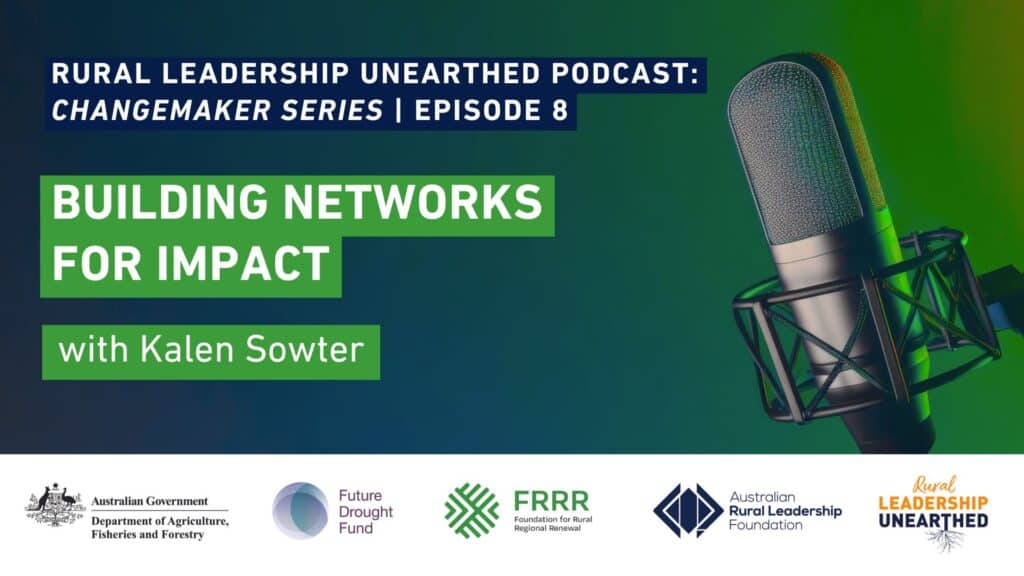Author: Gabrielle Hall
For Matt Norton, taking part in the Australian Rural Leadership Foundation (ARLF) National Mentoring Program has provided a simple but valuable outlet to talk about the challenges and pressures of the day-to-day with someone who truly understands.
For Matt Norton, taking part in the Australian Rural Leadership Foundation (ARLF) National Mentoring Program has provided a simple but valuable outlet to talk about the challenges and pressures of the day-to-day with someone who truly understands.
When Matt visited Canberra for the Australian Farmer of the Year Awards – where he was recognised as the 2022 Rural Consultant of the Year – a casual chat with ARLF Chief Executive, Matt Linnegar, inspired him to jump into a mentoring program.
“A number of people who had gone through the ARLF mentoring program said it was fantastic, and it was a time commitment I could manage,” Matt says.
As the director of Toowoomba-based consultancy, AgDSA, Matt has built a business around helping farmers and agribusinesses to communicate with government. Working on the planning, management and construction of feedlots and pig and poultry operations, he translates technical processes, overcomes differences, reduces risk and helps ensure everyone reaches a positive outcome. But even professional problem-solvers need a sounding board or a listening ear from time to time.
As well as learning from program presenters “at the top of their fields” who delivered practical strategies for handling challenges and building resilience, Matt was matched with mentor Rob Stafford.
“Rob has experience with government, agriculture, and a lot of years in the livestock space. It was a phenomenal experience. For me, having access to someone who understands where I’m at and what I do was really valuable.”
While it took a few sessions to build the trust and rapport needed to be fully open and frank about the pressures Matt grapples with day-to-day, he and Rob forged a positive, supportive relationship.
Help through the hectic periods
“Something as simple as having someone listen while I downloaded a bunch of things from the previous week was powerful,” Matt says.
“Rob helped me with a period of high workload and high pressure. Talking through that with him gave me the freedom to become comfortable saying ‘no’ to people. We worked on managing people’s expectations in a very upfront way, even if that’s a difficult conversation. That was a massive weight off my shoulders, and it’s helped me set clear expectations with new clients to the business.“ Matt says.
Throughout the program, Matt was able to identify that early in his career he struggled with patience, and with being “too opinionated” in his communication style.
“Some of the program content helped me to articulate to myself what some of these issues were, and one of the things we covered were the things people do when they are not listening properly and openly. I recognised myself in some of that.”
Matt still works on resisting the urge to jump into conversations without thinking, pulling himself back and allowing others the space to be heard.
As he continues to look for ways to be a leader making positive change in his sector and community, Matt is candid about the vulnerability that accompanies this.
“Fear of failure is definitely a part of what drives me. Recognition from my industry does give a measure of validation that I’m on the right track. That, along with the ARLF program and working with MLA as a Red Meat Ambassador, has given me the confidence to get out there and connect with people and talk to policy-makers.” He says.
Building up your own community
Matt has lived in Toowoomba for over ten years and is familiar with the challenges that face his region. Water security and affordable housing are major issues. As someone with a background of interpreting policy and communicating complex issues in plain language, he has found himself aiding communication between residents and council and advocating for his local community.
“Councils often find themselves fighting with communities who don’t seem to want growth, but usually the problem is solved by listening properly to community,” he says.
Active in a few community groups, in 2022 Matt joined the Lions Club in his local town of Westbrook, where he has helped increase the organisation’s reach in the community, and promote what they do beyond their usual networks.
Together, they have recently established a community Halloween event attracting thousands of trick-or-treaters to converge on a safely closed-off street. They support households to provide treats, and they supply some refreshments. The event has been a hit, and has enabled neighbours, businesses and school communities to stop, connect and get to know each other better.
“It’s easy on a local Facebook group to find fault and criticise each other. It’s very easy to yell or complain about things, but you get people together properly, maybe they won’t argue next time. Instead they’ll really talk and more importantly, listen.”
Through challenges like drought or economic downturn, Matt believes it is crucial to be conscious about our reactions to the efforts of others.
“If something is done well, it’s rarely recognised. We’re far quicker to criticise. By keeping people’s interactions as positive as possible, it doesn’t place all that weight on people’s mental health. When times are tough, it’s important to lift people up even more, and acknowledge them for the work they do.”
Giving and receiving is circular
While Matt’s formal sessions with his mentor, Rob, have come to an end, the pair have a lasting connection. Recently, Rob helped Matt identify the next opportunity he might pursue to further develop his leadership skills and experience, with his sights set on a longer ARLF program.
“Rob is semi-retired, but he has a lot of knowledge and information, and mentoring gives him a great way to direct this. He’s also staying in touch with the industry and business developments. I think it gives both of us a lot,” Matt says.
For Matt personally, giving back to people has become a growing priority. When the timing aligns, he would love to become a mentor on an ARLF program. He is also working with high school students through the AgForce School to Industry Partnership Program.
“I grew up in suburban Sydney without an ag bone in my body,” Matt explains. “I discovered agriculture in my high school show team, showing cattle around NSW. It’s ok if you don’t have an agriculture background, you can still find a pathway into the industry. That’s my passion – to help young people to understand that every bit of experience they have is worthwhile.”
The National Mentoring Program is part of the Helping Regional Communities Prepare for Drought Initiative delivered in partnership with the Foundation for Rural & Regional Renewal under the Australian Government’s Future Drought Fund. More than 300 people between 2021 and 2022 have already participated in a first iteration of the program called the Drought Resilience Leaders Mentoring Program.





